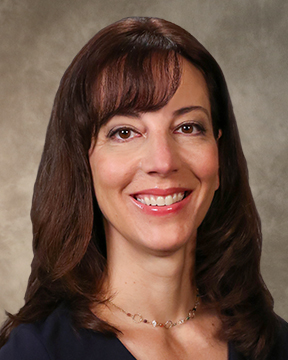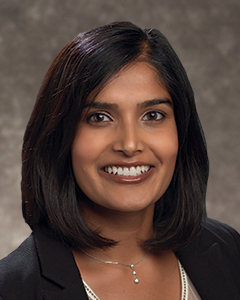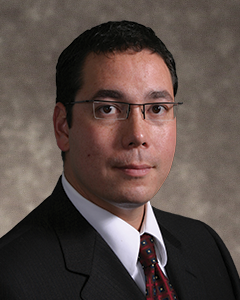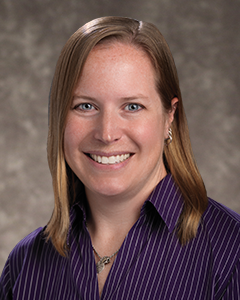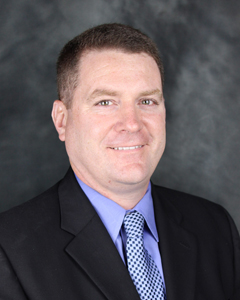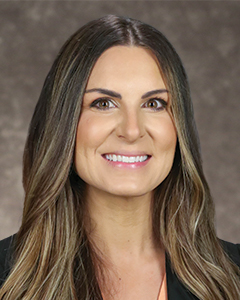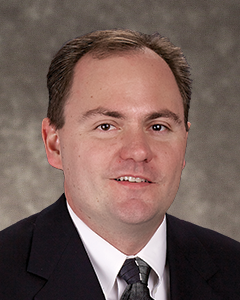Pulmonary Care
Contact Us
You'll need a referral for pulmonary care at North Kansas City Hospital & Meritas Health. For more information, call 816.691.5098.
Pulmonology
When it’s difficult to breathe, it’s hard to enjoy the people and places that mean the most to you. That’s why we’re so committed to providing the highest level of pulmonary care for our neighbors, friends and families in North Kansas City and its surrounding areas.
At North Kansas City Hospital & Meritas Health, you’ll have access to the most advanced pulmonary rehab practices available. In fact, we’re the only hospital in the Northland with a pulmonary rehabilitation program certified by the American Association of Cardiovascular and Pulmonary Rehabilitation.
Here, you’ll find a whole team standing by — ready to help with a wide range of treatment options to get you back to living your best life.
Pulmonary Conditions We Treat
You can rely on pulmonologists at NKCH & MH for a wide range of lung and respiratory conditions that make it hard to breathe, including:
- Airway diseases, such as asthma, COPD, bronchiolitis and bronchiectasis
- Cystic fibrosis, a genetic condition affecting the respiratory tract
- Emphysema, a condition caused by damaged and enlarged lung tissue
- Esophageal disorders, such as dysphagia, GERD and Barrett’s esophagus
- Lung cancer, which is the No. 1 cause of cancer deaths worldwide
- Pulmonary hypertension and fibrosis, which thickens lung tissue
- Respiratory infections, such as bronchitis and pneumonia
- Sarcoidosis, an inflammatory disease that affects the immune system
- Sleep-related breathing disorders, including central and obstructive sleep apnea
- Tracheal disorders affecting the windpipe, such as tracheal stenosis and tracheomalacia.
Pulmonology Tests & Procedures
Your pulmonology team will review your medical history and may order diagnostic tests to check for lung conditions. Depending on your symptoms, your doctor may recommend:
- A sleep study to diagnose any breathing issues during sleep
- Bronchoscopy to check your lungs, throat and airways
- Chest computed tomography (CT) scan to take detailed pictures of your chest
- Lung biopsy to collect samples of the lung tissue for testing
Low-Dose CT Screening
If you are considered high-risk for developing lung cancer, a low-dose CT (LDCT) screening can help detect the disease before you have symptoms. If the cancer is found early, treatment may be more successful.
The Test
During a LDCT lung cancer screening, special X-ray equipment connected to a computer takes detailed pictures of your lungs. The test is quick, painless and accurate.
Test Criteria
The American Cancer Society recommends yearly LDCT scans for lung cancer screening for people who:
- Are 50 to 80 years old
- Currently smoke or used to smoke
- Have a 20 pack-year or more smoking history
Call 816.691.5267 to schedule your lung screening with a physician referral. Most insurance plans cover the scan 100% for qualified candidates. Verify you have coverage before making an appointment.
Personalized Pulmonology Treatment
Our experts will design a treatment plan that considers your lifestyle, preferences and goals. Your respiratory treatment plan may include:
- Education, support and resources
- Lung transplant care
- Medications and ongoing management
- Pulmonary rehabilitation
- Smoking & vaping cessation
Inpatient Respiratory Therapy
If a medical condition brings you to NKCH for a hospital, stay, you’ll have on-site access to a whole team of physicians who specialize in caring for patients with breathing issues. Whether you have a condition affecting your windpipe or lungs, these specialists will help you breathe easier:
- Pulmonologists are doctors who can help you solve breathing problems.
- Respiratory therapists give patients oxygen, administer drugs to the lungs and manage ventilators.
Thoracic Surgery
Our thoracic surgeons use robotic surgery and other minimally invasive approaches to treat pulmonary conditions. Depending on your symptoms and goals, you may need:
- Bronchoplasty to repair damaged tissue in your bronchi, which are the large tubes that connect to your windpipe
- Esophagoscopy and esophageal surgery to treat esophageal cancer
- Lobectomy to remove the entire lobe
- Pneumonectomy to remove one of your lungs
- Segmentectomy or segmental resection to surgically remove tumors or part of a lung lobe
- Sleeve resection to surgically remove a lung tumor in a lobe of the lung and part of the airway
- Video-assisted thoracoscopic surgery (VATS) to diagnose and treat respiratory problems in the chest
- Wedge resection to remove a lung tumor and a small amount of surrounding tissue
- Windpipe (tracheal) resection to treat stenosis by removing the narrowed part of the windpipe (trachea)

